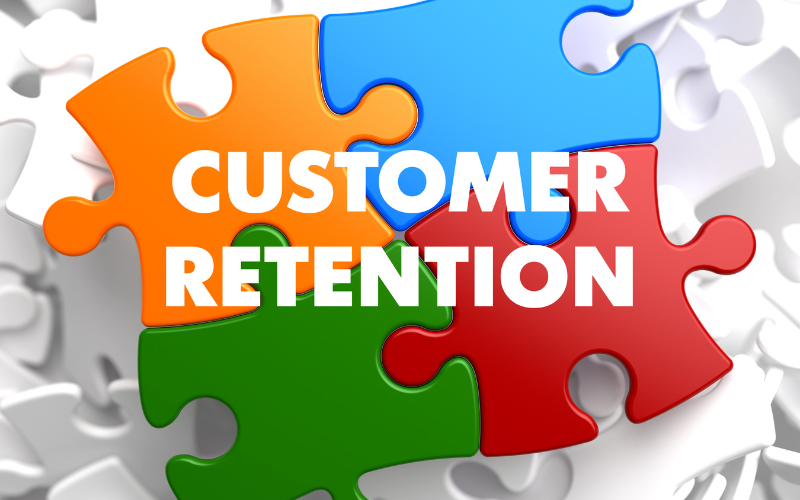In an era where digital connectivity has become synonymous with daily life, the question “Why is social media marketing important?” looms larger than ever before. The digital age has ushered in transformative changes, reshaping how businesses connect with their audiences, promote their products, and gain a competitive edge.
Table of Contents
In this article, we embark on a journey to uncover the compelling reasons why social media marketing is important and why it has become an indispensable cornerstone of modern business strategies. From brand visibility to customer engagement, lead generation to ROI measurement, we’ll delve into the critical facets that make social media marketing an invaluable asset in the digital landscape. Join us as we explore the dynamic world of social media marketing and uncover the strategies that can propel your business to new heights.
Defining Social Media Marketing
Social Media Marketing (SMM) is a powerful digital marketing strategy that leverages various social media platforms to promote products, services, or brands. In today’s digital age, understanding the fundamentals of social media marketing is crucial for businesses and individuals alike.
What is Social Media Marketing?
At its core, social media marketing involves creating and sharing content on social media platforms with the aim of achieving specific marketing goals. These platforms include popular networks like Facebook, Instagram, Twitter, LinkedIn, Pinterest, and more. The primary objective of SMM is to engage the target audience, build brand awareness, and drive traffic to a website or landing page.
Why is Social Media Marketing Important?
Social media marketing is vital for several reasons:
- Wider Reach: Social media platforms have billions of users worldwide, making them an ideal medium for reaching a broad audience.
- Targeted Advertising: SMM allows businesses to target specific demographics, interests, and behaviors, ensuring that marketing efforts reach the right people.
- Brand Building: Consistent presence on social media helps establish brand identity, credibility, and recognition.
- Engagement: It fosters direct interaction with customers, allowing businesses to respond to inquiries, receive feedback, and build lasting relationships.
- Content Distribution: Social media serves as a distribution channel for sharing blog posts, videos, infographics, and other valuable content.
- Competitive Advantage: Staying active on social media can give businesses a competitive edge, as many competitors are likely already using these platforms.
In the next section, we will delve deeper into the statistics and trends that highlight the significance of social media marketing in today’s digital climate.
Statistics and Trends
Understanding the current statistics and trends in social media marketing is essential for businesses aiming to stay competitive and relevant in the digital landscape. Let’s dive into some compelling statistics and trends that shed light on why social media marketing is crucial:
Explosive User Growth: Social media platforms continue to witness staggering user growth. As of the second quarter of 2023, there are over three billion active monthly users on Facebook alone. This sheer scale highlights the immense potential reach that social media offers.

Mobile Dominance: Mobile devices play a pivotal role in accessing social media. 99% of users access their favourite social platforms via smartphones or tablets. This trend underscores the importance of mobile-friendly content in social media marketing strategies.

Engagement Rates: Social media is not just about numbers; it’s about engagement. Studies show that businesses actively engaged on social media experience 40% higher customer engagement compared to those who aren’t.

Video Dominance: Video content is on the rise. Platforms like YouTube, Instagram, and TikTok have seen exponential growth in video consumption. Incorporating video into your social media strategy can significantly boost engagement.

E-commerce Integration: Social media platforms are increasingly becoming e-commerce hubs. 55% of users have made purchases directly through social media. This trend emphasizes the importance of social commerce strategies for businesses.

Influencer Marketing: Influencer marketing is thriving, with 90% of marketers believing it to be an effective strategy. Collaborating with influencers can help businesses tap into niche audiences and build credibility.

Ad Spend Growth: Companies are allocating substantial budgets to social media advertising. The global social media ad spend is projected to reach US$247.30bn by 2027, underscoring its importance in modern marketing strategies.

Brand Visibility and Recognition
In the digital age, brand visibility and recognition are crucial elements of a successful business strategy. Social media marketing plays a pivotal role in achieving these objectives.
Enhanced Visibility: Social media platforms provide businesses with a global stage to showcase their products and services. By strategically creating and sharing content, you can increase your brand’s visibility, ensuring it’s seen by a vast and diverse audience.
Consistent Branding: Effective social media marketing allows you to maintain a consistent brand identity. Elements like logos, colours, and messaging can be unified across all platforms, reinforcing brand recognition.
Community Building: Engaging with your audience on social media fosters a sense of community. When followers interact with your content and each other, it strengthens their connection to your brand, making them more likely to remember and recommend it.
User-Generated Content (UGC): Encouraging customers to share their experiences with your products or services on social media can boost brand recognition. UGC acts as authentic endorsements and reaches new audiences.
Influencer Collaboration: Partnering with influencers can rapidly increase your brand’s visibility. Influencers have dedicated followings that trust their recommendations, making them valuable assets in spreading brand awareness.
Content Virality: Well-crafted, shareable content can go viral on social media, significantly amplifying your brand’s reach and recognition. Memorable videos, images, or posts can create a buzz around your brand.
Brand Monitoring: Social media provides real-time insights into how your brand is perceived. Monitoring mentions, comments, and reviews allows you to address issues promptly and enhance your brand’s reputation.

By strategically utilizing social media platforms, businesses can increase their brand’s visibility and recognition, which are essential for staying competitive in today’s crowded market.
Audience Engagement and Interaction
One of the most compelling reasons why social media marketing is important for businesses is its unparalleled ability to foster audience engagement and interaction.
Two-Way Communication: Unlike traditional marketing, social media allows for real-time, two-way communication between businesses and their audiences. This interaction humanizes your brand, making it more relatable and trustworthy.
Feedback Mechanism: Social media provides an invaluable feedback mechanism. Customers can share their opinions, ask questions, and provide feedback effortlessly. This feedback loop helps businesses refine their products and services.
Building Relationships: Engaging with your audience on a personal level builds stronger relationships. Responding to comments, messages, and inquiries promptly demonstrates your commitment to customer satisfaction.
User-Generated Content: Encouraging users to create and share content related to your brand is a powerful engagement strategy. This not only amplifies your brand’s reach but also builds a sense of community.
Contests and Challenges: Organizing contests, challenges, or giveaways on social media can ignite enthusiasm among your followers. These activities generate buzz and encourage active participation.
Educational Content: Sharing informative and educational content that addresses your audience’s pain points establishes you as an industry authority. Educational posts often receive high engagement.
Live Streaming: Live streaming on platforms like Facebook Live or Instagram Live allows for real-time interaction with your audience. It’s an excellent way to answer questions, showcase products, and host events.

By actively engaging with your audience and fostering interaction, social media marketing not only creates a loyal customer base but also increases the chances of your content being shared. This word-of-mouth promotion can significantly boost your brand’s reach and reputation.
Lead Generation
Lead generation is a fundamental aspect of any successful marketing strategy, and social media marketing offers a treasure trove of opportunities for businesses to acquire high-quality leads.
Effective Targeting: Social media platforms provide advanced targeting options, allowing you to reach specific demographics, interests, and behaviours. This precision ensures that your marketing efforts are directed toward potential leads who are more likely to convert.
Lead Magnets: Businesses often use social media to promote lead magnets such as ebooks, webinars, or free trials. These incentives encourage users to share their contact information, turning them into potential leads.
Engaging Content: High-quality, informative content on social media can pique the interest of potential leads. Blog posts, videos, and infographics that address pain points and provide solutions are excellent lead generation tools.
Interactive Polls and Surveys: Conducting polls and surveys on social media is a creative way to engage your audience and gather valuable lead information.
Contests and Giveaways: Hosting social media contests or giveaways in exchange for participants’ contact details can rapidly expand your list of potential leads.
Chatbots and Messaging Apps: Integrating chatbots and messaging apps into your social media profiles can automate lead capture and provide instant responses to inquiries.
Lead Nurturing: Once you’ve captured leads through social media, it’s essential to nurture them through personalized content and targeted email campaigns, guiding them down the sales funnel.

Social media marketing’s lead generation capabilities extend beyond simply acquiring contact information. It also allows you to build relationships with potential customers, nurture them, and ultimately convert them into paying clients.
Customer Loyalty and Retention
Building customer loyalty and ensuring high retention rates are vital for the long-term success of any business. Social media marketing plays a pivotal role in achieving these objectives.
Personalized Engagement: Social media platforms allow businesses to engage with their customers on a personal level. Responding to comments, messages, and inquiries with a personal touch makes customers feel valued and appreciated.
Exclusive Offers and Discounts: Rewarding your social media followers with exclusive offers, discounts, or early access to promotions fosters a sense of loyalty. Customers appreciate feeling like insiders.
Content that Adds Value: Regularly sharing content that adds value to your customers’ lives, such as how-to guides, tips, and industry insights, keeps them engaged and coming back for more.
Community Building: Social media provides a platform to build a community around your brand. Encourage customers to share their experiences, ask questions, and interact with each other. A thriving online community can enhance loyalty.
Timely Customer Support: Providing timely customer support through social media channels shows that you are committed to addressing your customers’ needs promptly.
Feedback and Improvement: Use social media to gather feedback from your customers and show them that their opinions matter. Implementing changes based on their suggestions demonstrates your dedication to their satisfaction.
Retargeting Campaigns: Social media advertising allows you to create retargeting campaigns that re-engage previous customers, reminding them of your brand and encouraging repeat purchases.

By using social media marketing to focus on customer loyalty and retention, businesses can not only retain their existing customer base but also turn loyal customers into brand advocates who refer others.
Competitive Advantage
In today’s competitive business landscape, gaining a competitive advantage can be the key to success, and social media marketing offers several avenues to achieve this coveted edge.
Enhanced Visibility: Maintaining an active and engaging presence on social media platforms can significantly boost your brand’s visibility. This visibility allows you to stand out in a crowded market, making it easier for potential customers to find and choose your products or services.
Real-time Insights: Social media platforms provide real-time insights into market trends, customer sentiments, and competitor activities. Leveraging these insights enables you to adapt quickly and make informed business decisions.
Competitor Analysis: You can keep a close eye on your competitors through social media. Analyse their strategies, audience engagement, and content to identify gaps and opportunities for differentiation.
Innovative Marketing Strategies: Social media allows you to experiment with innovative marketing strategies such as influencer collaborations, viral campaigns, and interactive content. These strategies can help you stay ahead of the competition.
Customer Engagement: Consistent and meaningful customer engagement on social media can set you apart from competitors who may not be as responsive. Promptly addressing customer inquiries and concerns demonstrates your commitment to customer satisfaction.
Data-Driven Decision-Making: Social media analytics provide valuable data that can guide your marketing efforts. Using data to refine your strategies gives you a data-driven advantage over competitors who rely on guesswork.
Building Brand Authority: Establishing yourself as an industry authority through social media content can position your brand as a trusted leader in your niche. Customers are more likely to choose a brand they perceive as knowledgeable and authoritative.

By strategically leveraging social media marketing, businesses can gain a competitive advantage by enhancing visibility, staying informed about market trends, and engaging with their audience in a way that sets them apart from competitors.
Analytics and ROI
Understanding the performance of your social media marketing efforts is essential to determine whether your strategies are yielding a return on investment (ROI). Analytics play a crucial role in this evaluation.
Measuring Success: Analytics tools on social media platforms allow you to track key performance indicators (KPIs) such as likes, shares, comments, clicks, and conversions. These metrics provide insights into the success of your campaigns.
Audience Insights: Social media analytics also offer valuable audience insights. You can learn about your audience’s demographics, interests, and behaviours, helping you refine your targeting and content strategies.
Conversion Tracking: For businesses, the ultimate goal of social media marketing is often conversions. Analytics tools enable you to track conversions, whether they be website visits, lead form submissions, or sales.
ROI Calculation: Calculating ROI is crucial to assess the financial impact of your social media efforts. ROI is determined by comparing the revenue generated from social media marketing against the costs incurred.
Performance Optimization: Analytics provide actionable data that allows you to optimize your campaigns. You can identify what’s working well and what needs improvement, leading to more effective marketing strategies.
A/B Testing: A/B testing, facilitated by analytics, lets you experiment with different elements of your campaigns to determine which versions perform better. This iterative approach can significantly boost ROI.
Budget Allocation: Data-driven insights from analytics help in allocating your marketing budget more effectively. You can allocate resources to strategies and platforms that yield the highest ROI.

By harnessing the power of analytics, businesses can make informed decisions, optimize their strategies, and demonstrate the tangible ROI of their social media marketing efforts.
Conclusion
In today’s digital world, the importance of social media marketing cannot be overstated. It has evolved from a mere option to a fundamental necessity for businesses looking to thrive and succeed. As we’ve explored throughout this article, social media marketing offers a myriad of benefits that can give your business a competitive edge, drive growth, and strengthen your brand.
To recap, we’ve discussed how social media marketing enhances brand visibility and recognition, fosters audience engagement and interaction, fuels lead generation, cultivates customer loyalty and retention, provides a competitive advantage, and offers powerful analytics to measure ROI.
Social media platforms are where billions of people spend a significant portion of their time. They connect, share, and seek information. Your presence on these platforms can make a significant impact. By leveraging the various strategies and techniques discussed in this post, you can harness the full potential of social media marketing.
Remember, success in social media marketing doesn’t happen overnight. It requires a well-thought-out strategy, consistent effort, and an ongoing commitment to delivering value to your audience. Whether you’re a small startup or a well-established corporation, social media can level the playing field and open doors to opportunities you might not have imagined.
So, as you embark on your social media marketing journey, keep in mind the importance of understanding your audience, tracking your performance through analytics, and staying adaptable to changing trends. With dedication and the right approach, you can harness the immense power of social media to propel your business to new heights.
In this ever-evolving digital age, social media marketing is not just important; it’s essential. Embrace it, engage with your audience, measure your success, and watch your business flourish in ways you never thought possible.
Thank you for joining us on this exploration of Why is Social Media Marketing Important. We wish you great success on your journey in the world of social media marketing!



